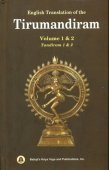Anavastha, Anavasthā: 14 definitions
Introduction:
Anavastha means something in Hinduism, Sanskrit, Jainism, Prakrit, Marathi. If you want to know the exact meaning, history, etymology or English translation of this term then check out the descriptions on this page. Add your comment or reference to a book if you want to contribute to this summary article.
In Hinduism
Vyakarana (Sanskrit grammar)
Source: Wikisource: A dictionary of Sanskrit grammarAnavasthā (अनवस्था).—Fault of having no end: endlessness; cf. एवमप्यनवस्था स्याद्या मूलक्षय-कारिणी (evamapyanavasthā syādyā mūlakṣaya-kāriṇī) Kāv. Pr.; cf.अवश्यं ह्यनेन अर्थानादि-शता केनचिच्छब्देन निर्देशः कर्तव्यः स्यात् । तस्य च तावत्केन कृतो येनासौ क्रियते । अथ तस्य केनचित्कृतस्तस्य केन कृत इत्यनवस्था । (avaśyaṃ hyanena arthānādi-śatā kenacicchabdena nirdeśaḥ kartavyaḥ syāt | tasya ca tāvatkena kṛto yenāsau kriyate | atha tasya kenacitkṛtastasya kena kṛta ityanavasthā |) M. Bh. on II.1.1.

Vyakarana (व्याकरण, vyākaraṇa) refers to Sanskrit grammar and represents one of the six additional sciences (vedanga) to be studied along with the Vedas. Vyakarana concerns itself with the rules of Sanskrit grammar and linguistic analysis in order to establish the correct context of words and sentences.
In Jainism
Jain philosophy
Source: archive.org: Anekanta Jaya Pataka of Haribhadra SuriAnavasthā (अनवस्था) refers to one of the “faults” (doṣa) mentioned in the Syādvādaratnākara as well as Vidyānanda’s Aṣṭaśatī.
-
Languages of India and abroad
Marathi-English dictionary
Source: DDSA: The Molesworth Marathi and English Dictionaryanavasthā (अनवस्था).—f (S) Unsettled, disordered, tumultuated state (of mind). Ex. puratēṃ vairāgya na hōtāṃ ugīñca haṭānēṃ viṣayatyāga kēlā asatāṃ antaḥkaraṇācī a0 mātra hōīla. 2 (Laxly.) Disorder of outward circumstances or of affairs; a plight, pickle, hobble. 3 Also anavasthāprasaṅga m The state of wanting a standing, a resting place, some end or bounds; interminateness, indefiniteness, unboundedness; the region beyond the ultimate (fact or truth). Ex. paramāṇūcā avayava punaḥ tyācā avayava asī kalpanā karīta suṭalyāsa a0 hōīla. 4 The abstract nature as independent of actual existence. 5 Popularly. Neglected or non-attended to state (as of children or animals).
--- OR ---
anāvasthā (अनावस्था).—f Popular corruption of anavasthā, and used in all its popular senses.
Source: DDSA: The Aryabhusan school dictionary, Marathi-Englishanavasthā (अनवस्था).—f Disordered state. Interminate- ness, indefiniteness.
--- OR ---
anāvasthā (अनावस्था).—f Unsettled state; neglected state
Marathi is an Indo-European language having over 70 million native speakers people in (predominantly) Maharashtra India. Marathi, like many other Indo-Aryan languages, evolved from early forms of Prakrit, which itself is a subset of Sanskrit, one of the most ancient languages of the world.
Sanskrit dictionary
Source: DDSA: The practical Sanskrit-English dictionaryAnavastha (अनवस्थ).—a. [nāsti avasthā yatra] Unsteady; °स्थो निष्करुणश्च (stho niṣkaruṇaśca) Daśakumāracarita 135; unsettled, not fixed; अनवस्थौ हि दृश्येते युद्धे जयपराजयौ (anavasthau hi dṛśyete yuddhe jayaparājayau) Rām.5.37.55; °स्थो वायुः (stho vāyuḥ) Śiśupālavadha 11.28.
-sthā [na. ta.]
1) Instability, unsettled condition, disorder, confusion.
2) Loose or unsteady conduct, incontinence.
3) (In phil.) Absence of finality or conclusion, an endless series of statements or causes and effects, one of the faults of reasoning (upapādyopapādakayoraviśrāntiḥ); एकमप्यन- वस्था स्याद्या मूलक्षतिकारिणी (ekamapyana- vasthā syādyā mūlakṣatikāriṇī) K. P.2; एवं च °प्रसङ्गः (evaṃ ca °prasaṅgaḥ) Ś. B.
4) Not being 1 days old (daśāhābhāvaḥ).
Source: Cologne Digital Sanskrit Dictionaries: Shabda-Sagara Sanskrit-English DictionaryAnavastha (अनवस्थ).—mfn.
(-sthaḥ-sthā-sthaṃ) Unstable, unsteady. 2. Incontinent. f.
(-sthā) 1. Instability, absence of fixed state or condition. 2. Uncertainty, doubt. 3. Incontinence, dissoluteness. 4. (In logic,) the abstract nature of a thing, independent of its existence. E. an neg. avasthā condition.
Source: Cologne Digital Sanskrit Dictionaries: Cappeller Sanskrit-English DictionaryAnavastha (अनवस्थ).—[adjective] unsteady, fleeting.
--- OR ---
Anavasthā (अनवस्था).—[feminine] instability, unboundedness, regressus in infinitum (ph.).
Source: Cologne Digital Sanskrit Dictionaries: Monier-Williams Sanskrit-English Dictionary1) Anavastha (अनवस्थ):—[=an-avastha] mfn. unsettled, unstable
2) Anavasthā (अनवस्था):—[=an-avasthā] [from an-avastha] f. unsettled condition or character
3) [v.s. ...] instability, unsteady or loose conduct
4) [v.s. ...] (in [philosophy]) non-finality (of a proposition), endless series of statements.
Source: Cologne Digital Sanskrit Dictionaries: Goldstücker Sanskrit-English DictionaryAnavastha (अनवस्थ):—I. [tatpurusha compound] f.
(-sthā) 1) An unsettled state, want of fixedness, unsteadiness, uncertainty.
2) Incontinence, dissoluteness.
3) Indeterminateness, unboundedness; esp. in the Nyāya philosophy: an endless series (of causes and effects), the regressus in infinitum; e. g. in arguing that the lamp is the cause which reveals the existence of a jar, the eye the cause which reveals that of the lamp, and so on. E. a neg. and avasthā. Ii. [bahuvrihi compound] m. f. n.
(-sthaḥ-sthā-stham) 1) Not fixed, not permanent, unstable, not lasting. E. a priv. and avasthā.
Source: Cologne Digital Sanskrit Dictionaries: Yates Sanskrit-English DictionaryAnavastha (अनवस्थ):—[ana+vastha] (sthaḥ-sthā-sthaṃ) a. Unstable.
Source: DDSA: Paia-sadda-mahannavo; a comprehensive Prakrit Hindi dictionary (S)Anavastha (अनवस्थ) in the Sanskrit language is related to the Prakrit words: Aṇavattha, Aṇavatthā.
[Sanskrit to German]
Sanskrit, also spelled संस्कृतम् (saṃskṛtam), is an ancient language of India commonly seen as the grandmother of the Indo-European language family (even English!). Closely allied with Prakrit and Pali, Sanskrit is more exhaustive in both grammar and terms and has the most extensive collection of literature in the world, greatly surpassing its sister-languages Greek and Latin.
See also (Relevant definitions)
Starts with: Anavasthadosha, Anavasthana, Anavasthaprasamga, Anavasthapya, Anavasthayin.
Ends with: Dhyanavastha, Madanavastha, Maranavastha, Navastha, Unmanavastha, Vyanjanavastha, Yauvanavastha.
Full-text: Anavattha, Anavasthiti, Anavasthayin, Anavasthita, Anavasthitatva, Anavasthitacitta, Anavasthitacittatva, Apramaniki, Anavasthana, Pramaniki, Saptadosha, Cakraka, Dosha, Avastha, Anyonyashraya.
Relevant text
Search found 22 books and stories containing Anavastha, Anavasthā, Anāvasthā, An-avastha, An-avasthā; (plurals include: Anavasthas, Anavasthās, Anāvasthās, avasthas, avasthās). You can also click to the full overview containing English textual excerpts. Below are direct links for the most relevant articles:
Sahitya-kaumudi by Baladeva Vidyabhushana (by Gaurapada Dāsa)
Text 2.28 < [Chapter 2 - The Natures of Words (śabda)]
Siddhanta Sangraha of Sri Sailacharya (by E. Sowmya Narayanan)
The Tattvasangraha [with commentary] (by Ganganatha Jha)
Verse 2891 < [Chapter 25 - Examination of the Doctrine of ‘Self-sufficient Validity’]
Taittiriya Upanishad Bhashya Vartika (by R. Balasubramanian)
Vakyapadiya of Bhartrihari (by K. A. Subramania Iyer)
Verse 1.95 < [Book 1 - Brahma-kāṇḍa (or Āgama-samuccaya)]
Verse 3.14.254 < [Book 3 - Pada-kāṇḍa (14): Vṛtti-samuddeśa (On Ccomplex Formation)]
A comparative study between Buddhism and Nyaya (by Roberta Pamio)
1.2. The Nyāya View < [Chapter 1 - The Nature and Criterion of Knowledge]
Related products

